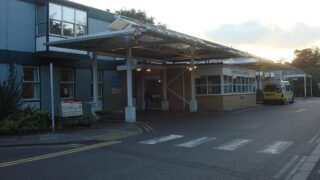Health workers in England – angry that rising costs have already wiped out their recent pay rise – have voted to oppose the government over the 3% increase, says UNISON today.
Publishing the results of a consultation exercise that ran over the summer, UNISON says the overwhelming majority (80%) of health workers are not happy with the pay rise and want to challenge the government.
Opposition to the 3% will be the key topic of discussion at UNISON’s virtual health conference, which starts later today.
Tens of thousands of exhausted staff – including nurses, healthcare assistants, ambulance workers and hospital porters – taking part in the online vote are fed up of being taken for granted, says UNISON.
Health workers are facing what is predicted to be the worst winter in history for the NHS, a mounting patient backlog and staffing shortages.
With other sectors boosting wages to attract workers, UNISON says many health staff have had enough and are likely to quit for less stressful, better paid jobs elsewhere.
The NHS is already 100,000 employees short and losing many more would spell staffing nightmares for trusts and disaster for the nearly six million people awaiting treatment, warns the union.
Record inflation has wiped out the long-overdue wage rise NHS workers received only this month. Staff will be even worse off once the impending national insurance hike and next month’s universal credit snatch have been factored in, says UNISON.
UNISON’s evidence to the NHS pay review body (PRB) had called for a wage increase of at least £2,000 for each individual health worker. While the 3% increase delivers this for NHS staff earning over £70,000, those on the lowest wages are receiving under £600.
It puts porters, cleaners, 999 call handlers, healthcare assistants and other low-paid staff on less than the real living wage of £9.50 an hour (£10.85 in London) and is not the fair and equal pay rise NHS staff deserve, says UNISON.
The union believes the PRB made a grave miscalculation by putting forward a 3% wage increase, a figure opposed by the union but accepted by the government. UNISON says that both the PRB and ministers failed to factor in rapidly rising inflation.
UNISON says the result of its consultation exercise sends a strong message to ministers that the stability of the NHS is at stake unless the government does more to value the staff who run it.
The union will now launch an indicative ballot. This is to see how many health members would be prepared to take the sustained and widespread industrial action it believes is needed to change the government’s decision.
UNISON head of health Sara Gorton said: “The fact that so many health staff say they are willing to stand together to challenge the 3% should make the government think twice. Many feel so let down they’re telling us they feel like quitting overnight.
“Boris Johnson said he would give the NHS what it needed. Instead, rising costs mean staff will be no better off, adding to low morale, burnout and disillusion. Hospital admissions are rising, the backlog feels overwhelming, and the threat of the worst winter ever is looming large.
“UNISON gave the pay review body and the government compelling evidence that a minimum £2,000 rise would be enough to persuade people to stay. But both chose to disregard this.
“With the lowest paid health workers hit the hardest, the government is doing the opposite of levelling up. Ministers must put this right.”

